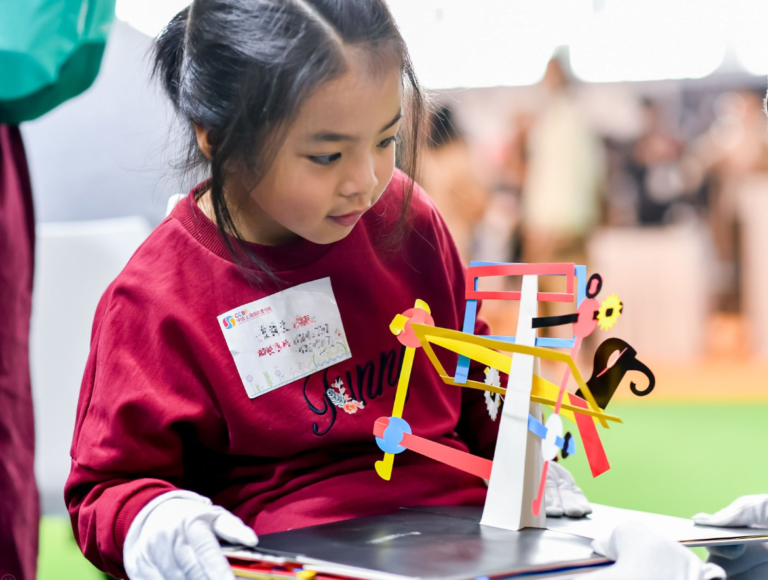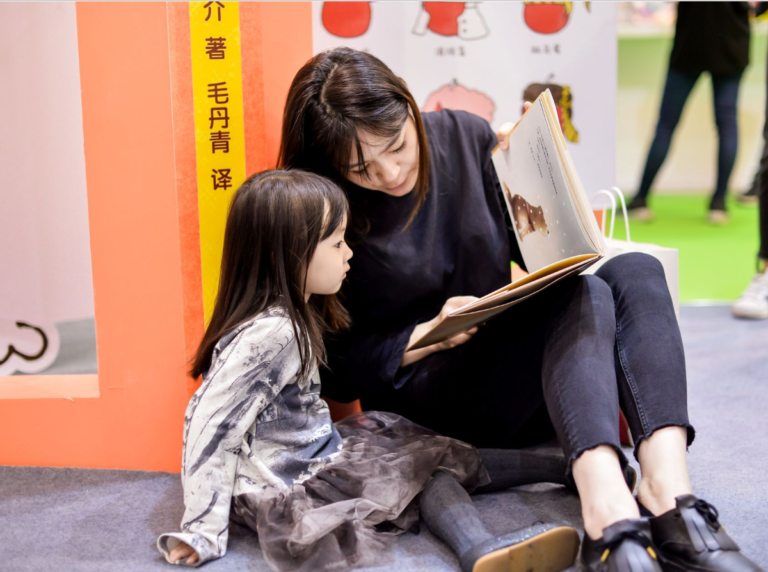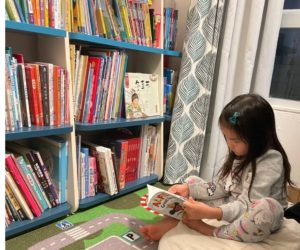Earlier this month, I attended the annual China Shanghai International Children’s Book Fair Conference (CCBF) which was a buzzing and insightful event. There was this particular panel discussion by experts on the topic of ‘Learning to Read, Learning to Love Reading – How to Raise Readers for Tomorrow’ which I found especially resonating and inspiring that I am sure many of our Reading Panda friends would love to learn more, so here are the highlights and some of my thoughts to share with you all!
The panel of experts ranged from the NY Times Children’s Books Editor Maria Russo, to Children’s Literature Promoters and Book Publishers from around the world including Ding Xiaoqing from China and Jake Hope from UK, where each gave a speech followed by questions at the end from the audience floor.
Many great ideas were shared, and I have included at the end of this post a shortlist of Dos and Don’ts suggested by Maria, which I think is a good guide with examples of the simple things we can do to raise kids who will love reading.
Amongst the many questions raised by the floor, there was this specific one raised by a parent which stunned me and left me with food for thoughts. It was a genuine one which goes, “How can I test and benchmark my child to know what reading level he is at, so I could pick the right book level for him as labelled by the publishers?”
I could almost feel the burden this parent carries, and you may agree with me that children’s reading has sometimes become a source of stress for the modern-day parents. We all know that reading will do our children good in many ways, but may not be sure how to help them read well; and most importantly, how to raise self-motivated readers who would enjoy picking up a book to read without you nagging. The following is one of my favourite answers from the panel:
“School is where kids LEARN to read, home is where kids learn to LOVE to read.”
Every child’s learning pace and ability is different, so there is no need to rush a child to read on their own. Leave the learning to read process to schools, and parents should focus instead on the enjoyment of reading and finding topics that interest your children at home. Apart from bookstores, go to the library together and swap books with friends! Your children’s reading ability will come naturally once they found reading interesting.
Worry less about reading levels! Do not talk about reading levels with your children, and never ask them if a book is too easy or difficult (just observe if he/she is interested in the book). Ask instead if they like the book or characters in the book and let your children have more say in what to read – be it picture books, comics, sports magazines, or activity-based books.

Maria also shared it is a myth that picture books are only for young children. Research has shown that reading picture books lights up both sides of your brain, as the brain deciphers both details in the pictures and the descriptive words alongside the pictures. It is also a good medium to bridge the communication on difficult topics for advanced readers.
The key here is to help your child relate reading to be a fun activity. There is certainly no need to create a rewards system at home to read – reading itself should be the reward on its own! Think about it, parents usually don’t give rewards for things that is fun, such as playing in the park. Rewards are usually related to things that are difficult or boring! Children will be self-motivated to read when they relate it to be something fun and enjoyable.

As the discussion progressed, a Children’s Reading Ambassador asked “When choosing a book to read with children, whether an original title (i.e. created by a local author) should be preferred over a translated title or vice versa?” This resonated with me as it was also a question I pondered when looking for good titles.
If any of you had spent time looking for a good Chinese picture book for your children, you would notice that there are many more translated titles compared with original creation in the current market (especially in simplified Chinese, although it is slowly balancing off in recent years).

The answer from Ding Xiaoqing was the most meaningful:
A good story is always a good story no matter the origin, and it is valuable for our children to have a diversified view. The more important thing is the common values that the different books convey despite the cultural differences.
It is so true that children wouldn’t care much about the book’s origin as long as the story appeals to them. Others from the panel referred to the quote “A book could be a mirror or a window” – we read to see two kinds of worlds: ourselves reflected, and the ones we can’t imagine by peeking into other people’s lives…Our kids need to read about people not like themselves to expand on their horizons and their empathy.

Towards the end of the Q&A session, a parent asked – “What to do if the parents themselves are not keen readers?” Fret not! Once you have made up your mind to raise children who love reading, just remember to view reading as a fun and bonding activity instead of seeing it as a chore (this is the only difficult part in my opinion), and the rest will come. As mentioned earlier, here is a shortlist of the Dos and Don’ts shared by Maria in her presentation on how to raise a reader, which you can see a lot is about having the right mindset with examples of the simple things that you can do:
- Do broaden your idea of what counts as a book – from joke books to puzzle books.
- Do express delight over your child’s book choices, interests, and curiosity.
- Don’t talk about reading levels.
- Don’t ask if it’s too easy or too hard.
- Don’t judge.
- Do trust teachers to handle the nuts and bolts of learning to read.
- Do let your kids go at their own pace.
- Do let them make mistakes.
- Do respect if they dislike reading aloud.
- Do talk about books when you’re together, for a meal or just hanging out.
- Do watch movies based on books together.
- Don’t make it competitive.
- Do give books as gifts – and show appreciation for books as gifts.
- Do treat books well.
- Do give your child his or her own space for books.
- Do donate books.
- Do use bookmarks.
- Do talk about what it takes to make a book.
I have a passion for teaching kids to become readers, to become comfortable with a book, not daunted. Books shouldn’t be daunting, they should be funny, exciting and wonderful; and learning to be a reader gives a terrific advantage.

Should you want to read more about “How to get your child excited about reading”, Auntie Jen and I worte a simple guide earlier that you can download when you sign up to our newsletter – simply click here to sign up. Feel free to drop us a message below or via Facebook on any questions you may have about reading.
Have a fun and happy reading journey with your children!





